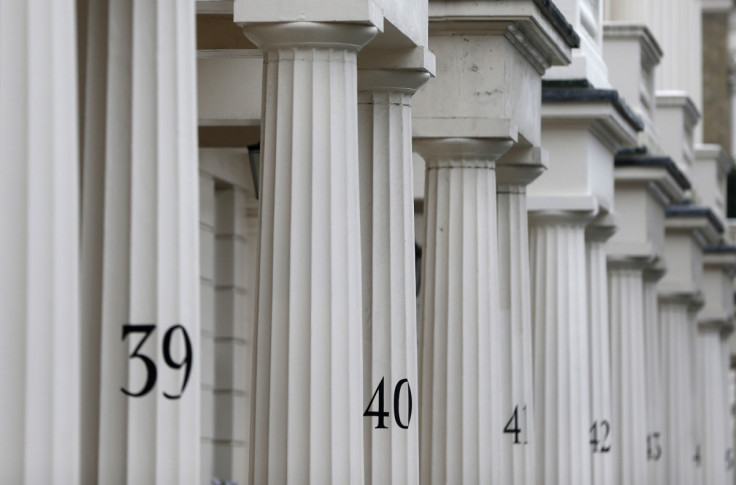George Osborne's 'extreme' stamp duty hikes sent sales of £1m+ homes crashing
Analysis of Land Registry data reveals scale of drop in home sales linked to 2014 stamp duty reforms.

The number of homes worth more than £1m changing hands in England and Wales has crashed since stamp duty was hiked on expensive homes at the end of 2014 by George Osborne to the surprise of the property industry.
Those purchasing homes worth more than £1.1m, many of them in London where homes are significantly more expensive than elsewhere in the country, faced a significant increase in their stamp duty costs as the rates were increased on pricier property.
Analysis of Land Registry transactions data show there were 4,302 for homes worth more than £1m during the third quarter of 2014, the final three months before the reforms were announced and introduced overnight. In the same quarter in 2016, there were 2,600, a 40% drop. It is also 20% below the quarterly average for since the beginning of 2013.
At the top end of the market, those homes worth £5m or more, transactions fell from 238 in the third quarter of 2014 to just 81 in the same quarter of 2016, a 66% drop and 53% below a running fifteen-quarter average of 172.
Alex Michelin, co-founder the luxury London property developer Finchatton, said the stamp duty hike has "completely stagnated the market and that just can't be good for anything".
"I just think it's ridiculous to have gone to such an extreme and all that's happened is no-one's moving, no-one in London wants to move, no-one wants buy anything, no-one wants to sell anything," he told IBTimes UK.
"And it's not that the threshold of £1m or anything is even that high because in large parts of London probably over half the homes are over a million. It's just a tax on London and I don't think it's sensible, I really don't.
"They're earning less stamp duty and I hope sense prevails and he decides that actually this was silly... It's just bad on all fronts. To be honest, I can't see anything that's good about it."
A report by the Evening Standard claimed that the subsequent drop in prime London property sales has carved a £10bn hole in Treasury finances because less revenue from stamp duty was rolling in.
| Quarter | Total £1m+ sales | Total £5m+ sales |
| 2013 Q1 | 1800 | 68 |
| 2013 Q2 | 2373 | 145 |
| 2013 Q3 | 3479 | 182 |
| 2013 Q4 | 3010 | 200 |
| 2014 Q1 | 2831 | 164 |
| 2014 Q2 | 3476 | 180 |
| 2014 Q3 | 4302 | 238 |
| 2014 Q4* | 3271 | 231 |
| 2015 Q1 | 2705 | 169 |
| 2015 Q2 | 3136 | 147 |
| 2015 Q3 | 4356 | 198 |
| 2015 Q4 | 3919 | 204 |
| 2016 Q1 | 4778 | 210 |
| 2016 Q2 | 2325 | 156 |
| 2016 Q3 | 2600 | 81 |
Source: Land Registry transactions data, *the quarter in which the stamp duty reforms were introduced
The top rate of stamp duty is 12% and hits homes worth over £1.5m. The next bracket down, between £925,001 and £1.5m, has a 10% rate. Part of Osborne's reform was to make the system work like income tax, so only the portion of the property's value that falls into the bracket is subject to the rate.
Before, the rate would be levied on the whole property. Stamp duty was cut for 98% of people who pay it, said the Treasury, but those at the top — and so who pay most — faced bigger bills.
Ahead of Chancellor Philip Hammond's 2016 Autumn Statement, many in the property sector pushed for the Treasury to look again at the 2014 stamp duty reforms arguing they are counterproductive.
But Hammond left the stamp duty reforms untouched. Now property professionals have their hopes set on a rethink in the spring Budget. "The government absolutely has to look at the stamp duty and it's disappointing this opportunity has been missed," said James Evans, chief executive of the London estate agent Douglas & Gordon.
"People who genuinely understand the London property market will be disappointed at the lack of change to the highest SDLT band. The volume of properties in the top bracket is relatively very small, but the high rate of SDLT is stifling movement at the very top of the property food chain and that, in turn, is leading to stagnation in the rest of the market."
Michelin said the politics of cutting stamp duty on expensive homes should not get in the way of sound policy. "Does some guy in Manchester care that some guy is buying a home in London and only paying 8-9% stamp duty rather than 12%? I'm just not sure they care if you reduce it a little bit," he said.
"And if it's earning the country less money from these rich people, as it were, then surely everyone would welcome taxing them so we earn in gross more than we're currently doing, which would be to reduce stamp duty and increase transaction volumes again."
While the stamp duty reforms have had the biggest impact on the top end of the market, it has also been hit by the uncertainty around Brexit following the 23 June referendum.
The stability and strength of the UK economy has been brought into question, and the future of London's status as the leading global finance centre — a key driver of demand in the city's prime property market — is also in doubt.
© Copyright IBTimes 2025. All rights reserved.






















